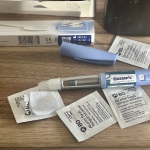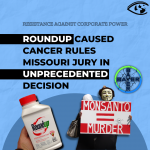US: Drug Makers Scrutinized Over Grants
A Congressional investigation of the money that drug companies give as supposed educational grants has found that the payments are growing rapidly and are sometimes steered by marketing executives to doctors and groups who push unapproved uses of drugs.
Twenty-three drug makers spent a total of $1.47 billion in 2004 on educational grants, or an average of $64 million per company, according to the Senate Finance Committee. That number was a 20 percent increase from the total in 2003, which was $1.23 billion.
The committee did not estimate what percentage of those grants were instead used for marketing purposes. But in a letter sent Monday to Johnson & Johnson, the committee suggested that the use of educational grants to further marketing aims was widespread in the industry. The committee also sent letters to most other major drug makers this week, seeking more information about their use of educational grants.
The investigation is being directed by Senator Charles E. Grassley, Republican of Iowa, and Senator Max Baucus, Democrat from Montana, who are the chairman and ranking minority member, respectively, of the committee.
"It's hard to see how you could call some of these grants 'educational,' " Mr. Grassley said in an interview.
Mr. Baucus added, "If drug companies are crossing the line with these grants and influencing providers to make treatment decisions they might not otherwise make, that's a problem and we're going to tackle that."
The investigation is part of a growing reassessment by federal legislators and prosecutors of the ways that drug makers are said to encourage doctors to prescribe medicines for uses not approved by federal drug regulators.
Although doctors are allowed to prescribe federally approved drugs for any purposes they see fit, companies are allowed to market drugs only for their specifically approved uses. But in years past, at least, drug makers have given grants to doctors, medical societies and patient groups that do promote unapproved, or off-label uses.
There is no doubt that off-label use of drugs is big business for the pharmaceutical industry. It has been estimated that more than half of all prescriptions written nationwide are for off-label uses.
Food and Drug Administration regulations have long allowed drug companies to give educational grants to individuals or groups that discuss or promote off-label uses. But in recent years, federal prosecutors have been investigating whether these activities have strayed beyond educational purposes and violated antikickback statutes or resulted in the government's spending money in its Medicare and Medicaid health programs for prescriptions that were not warranted.
In one example cited in the committee's letter, Johnson & Johnson in 1999 provided an "educational" grant to pay for an alumni reception at the annual meeting of a medical specialty society.
That grant was provided at the request of a physician who had previously received grant money for research and educational activities related to Propulsid, a Johnson & Johnson drug that was withdrawn in 2000 after it was found to cause potentially fatal heart arrhythmias. Although Propulsid was approved only to treat severe heartburn in adults, it ended up being widely prescribed for off-label use by children.
The committee's letter seeks information beyond what Johnson & Johnson has already provided investigators. Jeffrey Leebaw, a company spokesman, declined to comment, beyond saying, "We are in receipt of the letter and will cooperate with the committee's request for additional information."
Ken Johnson, a senior vice president for the industry's main trade group, the Pharmaceutical Research and Manufacturers of America, said drug makers' decisions about awarding educational grants were up to the individual companies. "We do, however, offer comprehensive voluntary guidelines to our member companies that are designed to help keep marketing practices ethical," he said.
Some companies have said that they have revamped their grant-making procedures recently, taking the power to bestow grants out of the hands of marketing executives and giving it instead to executives in the companies' medical divisions.
But the committee found that these changes had not been universally adopted.
"It appears that many manufacturers' sales and/or marketing personnel still have a role in originating or evaluating grant requests," the committee's letter to Johnson & Johnson said.
The letter asked pointed questions about the company's efforts to promote Propulsid, particularly among children.
Days before the committee's investigation began last summer, an article in The New York Times detailed how Johnson & Johnson gave grants to doctors, medical societies and patient advocacy groups that promoted Propulsid's use in children. The drug was widely prescribed by pediatricians, even though Propulsid was never shown to be effective in children, was never approved by federal regulators for use in children, and may have been particularly toxic to children.
The committee's letter to Johnson & Johnson said that information that the company had earlier given to the committee about its "efforts to promote the use of Propulsid in children raises additional questions."
The committee found, for example, that the company's educational grants were being authorized by executives with titles that included product director, gastroenterology product director, Propulsid brand product director and director of segment marketing.
"Most, if not all, of these titles appear to relate to positions involved in sales and/or marketing," the letter noted. And it said many of the grants that Johnson & Johnson provided relating to Propulsid "have no apparent relation to education."
The letter noted that from 1996 through 1999 Johnson & Johnson provided more than $1.3 million to a patient advocacy organization that had almost no financing from any other source. The group folded in 2000 after Propulsid was withdrawn.
The letter does not identify this group, but the details match those of the American Pseudo-Obstruction and Hirschsprung's Disease Society. The group helped to train speakers who, over three years, made presentations to 6,000 to 8,000 pediatric doctors and nurses about the treatment of childhood reflux, recommending Propulsid.
The letter also noted that Johnson & Johnson provided significant financing to three medical societies that it did not identify. The level of financing was such that these groups "may become so reliant on industry funding that it may compromise their independence," the letter stated.
- 122 Pharmaceuticals



